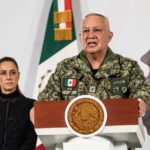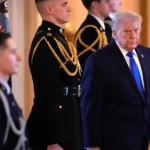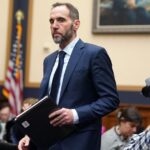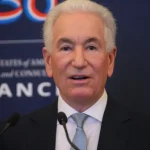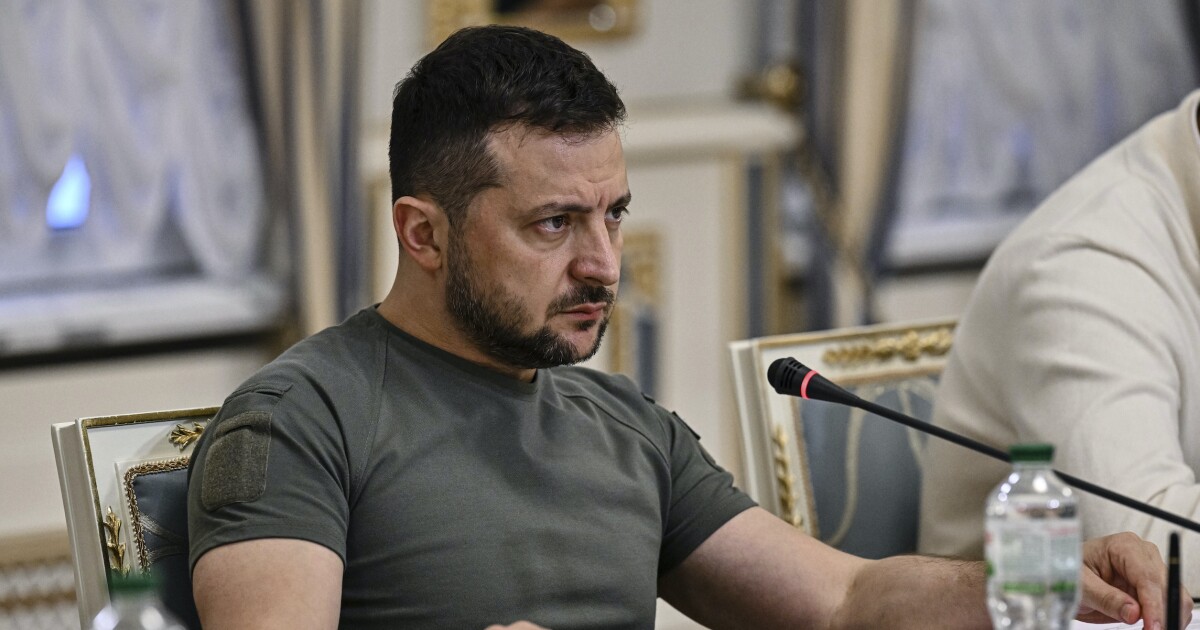

Russian President Vladimir Putin will be unable “to preserve his own life” if he uses nuclear weapons against Ukraine, according to Ukrainian President Volodymyr Zelensky, who insisted that such an attack would not defeat his country.
A series of Ukrainian battlefield successes prompted Putin to imply that Russia could use nuclear weapons pursuant to a so-called precedent set by the United States at the end of the Second World War. That threat prompted President Joe Biden to suggest that Putin’s use of even a relatively small nuclear weapon could “end up with Armageddon,” while Zelensky and other central European leaders formed a confident chorus in rebuffing Putin’s threats.
“I believe that this [president] of Russia, I think he loves his own life,” Zelensky told the Lowy Institute, an Australia-based think tank, through an interpreter. “And I think he clearly understands that after the use of the weapons, he would be unable anymore to preserve, so to say, his life. And I’m confident of that.”
The specter of a nuclear strike has hovered over the war in Ukraine due to a combination of Kremlin rhetoric and Russia’s development of an “escalate to de-escalate” doctrine — the theory that a “low-yield” nuclear weapon might allow Russian forces to win a nuclear war in Europe without provoking a major U.S. response. Biden challenged that theory during a Democratic fundraiser Thursday evening, but his assessment that Putin is “not joking when he talks about the use of tactical nuclear weapons or biological or chemical weapons” gave more credence to Putin’s threats than some European leaders would advise.
PUTIN ALLY URGES RUSSIAN DEFENSE MINISTER TO KILL HIMSELF AS LOSSES MOUNT
“Putin wants us to believe that he is going to use the tactical nuclear weapon because this is another tool of blackmail to Ukraine and to the free world,” Polish Prime Minister Mateusz Morawiecki told the Warsaw Security Forum on Tuesday. “It’s a chicken game.”
The public statements by heads of state across NATO this week have raised a curtain on the high-stakes debate rippling across the trans-Atlantic alliance in response to the unprecedented dilemma posed by Putin’s aggression. U.S. and allied leaders, not only in Europe but the Indo-Pacific, do not want to yield to Putin’s nuclear threats and thus set a precedent that other nuclear-armed states, such as China, might follow in attacking their neighbors. And yet, the decision to arm Ukraine has proven more successful than many Western leaders dared to hope in the weeks before the war, raising the question about how Putin will respond to a war that has proven not only to be expensive but perhaps disastrous.
“I think that if you’re just afraid, just afraid, then you must sit frozen and sort of tremble and do nothing about it,” Lithuanian Prime Minister Ingrida Simonyte said during an appearance alongside Morawiecki. “So I see no much value in sitting and debating whatever happens in his crazy mind. I just know that the only way to react to this is to show a stronger counterpower because otherwise, we will be just sitting and trembling somewhere and waiting [for] whatever he does next.”
Morawiecki argued that Putin is trying to scare Ukraine’s international supporters into a choice to “surrender as quick as possible” by manipulating a presumed Western belief that Russia’s threats must be accommodated. The Polish politician, while suggesting that central and Eastern European leaders have a more sophisticated understanding of how to manage the risk of a clash with Russia, argued that acquiescence to Putin’s threats could backfire by convincing him that nuclear threats allow him to get what he wants.
“The reality is different,” he said. “We central European countries know the history very, very well. And Russia [takes a] step back only when it sees that there’s a counter[vailing] power standing in front of Russia.”
Lithuania and Poland have a shared history with Russia because they formed a major power known as the Polish-Lithuanian Commonwealth that was weakened and ultimately erased from the map of Europe through a series of partitions that parceled out their territory among neighboring empires. The first two partitions, in 1772 and 1793, saw Russia annex some of the territory known as Ukraine, including some of the cities south of Kyiv that have been struck by Russian missiles during the current war.
Putin, after initially claiming the war was necessitated by his fear that Biden and other Western leaders would admit Ukraine into NATO, has characterized the war as a repetition of the struggle that allowed Peter the Great to forge the Russian empire in the early 18th century.
“Peter the Great waged the Great Northern War for 21 years,” Putin said in June. “When he established the new capital [in St. Petersburg], none of the European countries recognized this territory as Russian. They recognized it as part of Sweden. However, from time immemorial … this territory was under Russia’s control. The same is true of the western direction, Narva and his first campaigns. Why would he go there? He was returning and reinforcing; that is what he was doing. Clearly, it fell to our lot to return and reinforce as well.”
Zelensky, in his address to the Australian think tank, warned that autocrats like Putin risk “the loss of the history” through unilateral and ill-advised decisions. And while he acknowledged that Russia has the power “to kill a lot of Ukrainians,” he maintained that Russia can’t win the war.
“We are a great nation,” he said. “We are fighting for ourselves. In this very moment, we are fighting for our families, and this is what brings [the] strength to democracy. We are not fighting for some czar or the emperor, not for the comfort of a single person, but we are fighting for our homes and for our rights. And this is what brings our freedom.”
Even the use of nuclear weapons would not change that fundamental feature of the war, according to Zelensky, who predicted that world leaders would not respond to a nuclear strike by undercutting Ukraine’s resistance against Russia.
CLICK HERE TO READ MORE FROM THE WASHINGTON EXAMINER
“Even if he will decide to launch a nuclear strike, well, what can I say? I think the world will never forgive this,” he said. “I think the world will never forgive this … and will never forgive it, [give] this territory to Russia.”


